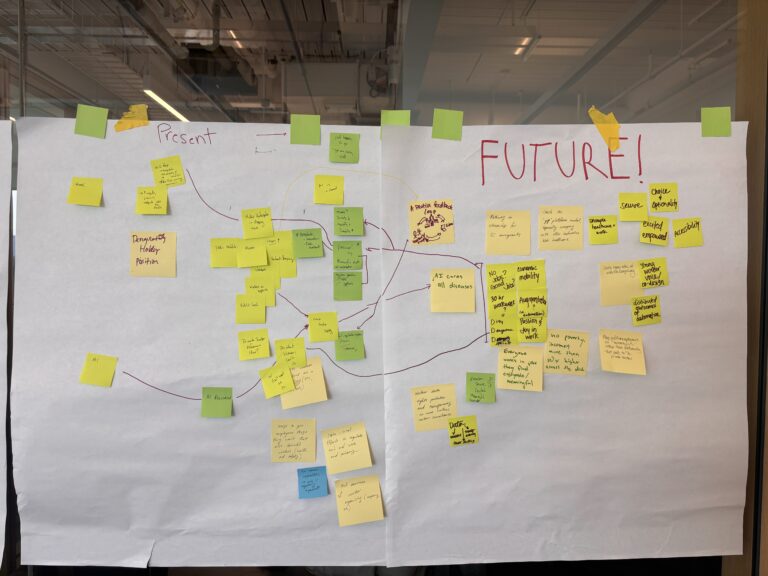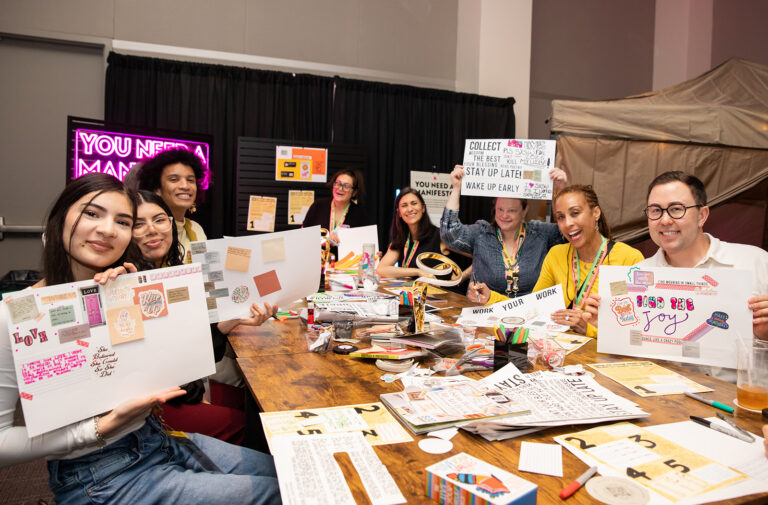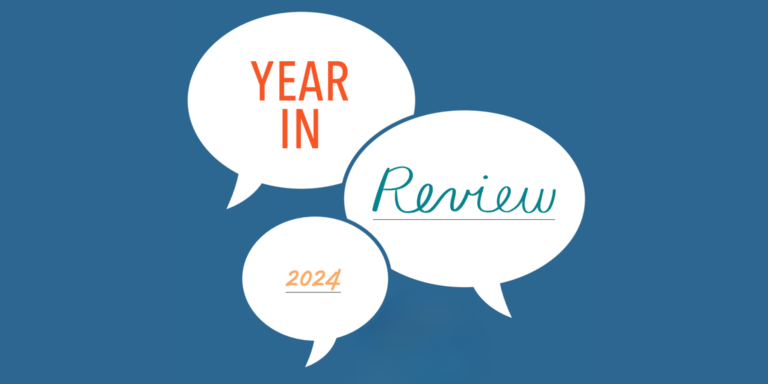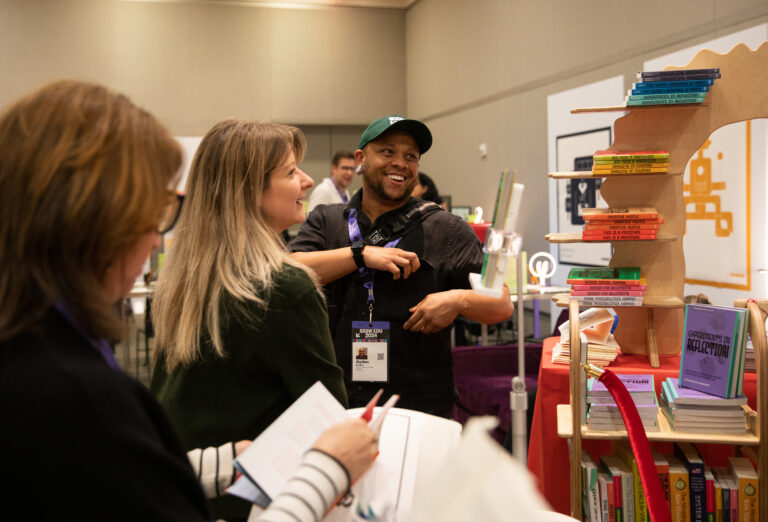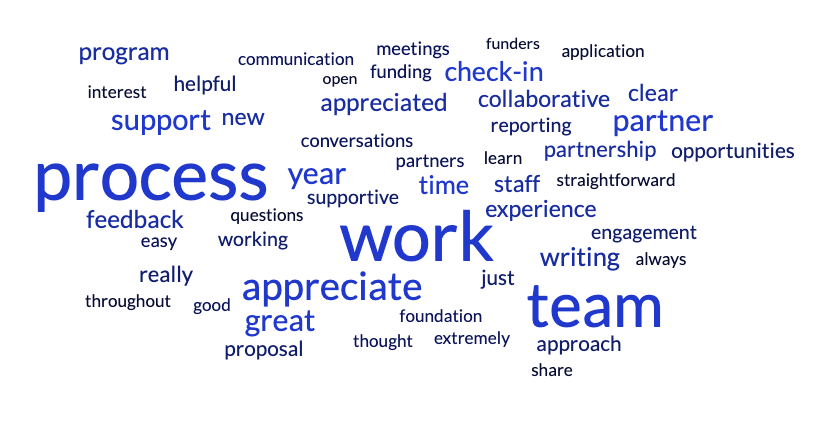
As part of our commitment to effective philanthropy, Siegel Family Endowment collects annual feedback from our grantees. This includes an online survey of our 2023 grantees and a set of confidential interviews conducted by an independent researcher and writer (read full methodology). The project is designed to solicit honest reflection from grantees about the ways in which the philanthropic sector can be most effective; the ideal relationship between funders and grantees; and the ways in which philanthropy should shift practice in order to improve effectiveness and better support grantee organizations. It also includes candid reflections about our own strengths and areas of improvement, as well as steps we plan to take to strengthen our grantee relationships, which are at the heart of what we do. See our 2022 post.
What follows is a summary of key themes put together by our third party interviewer – and how we plan to respond.
Finding 1. Grantees value funder trust, characterized by funder support for the mission, ideas, and people within an organization, rather than specific programs or difficult-to-achieve outcomes.
Nearly all of the grantees interviewed for this project independently voiced the importance of a trusting relationship between the funder and the grantee. Most saw this trust displayed in investments that leveraged grantee expertise and that positioned grantees and funders as peers and partners, removing traditional hierarchies. Others stressed the need for funders to buy into the mission of an organization and to allow the grantee to chart the “how.” Many interviewees explained that trust wasn’t an excuse for grantees to do whatever they pleased without accountability, but rather was an invitation to innovate and try new approaches.
We believe trust should be foundational to the philanthropic field. Trust is, and has always been, a guiding principle of our process and relationship-driven approach. In general, interviewees praised our trust in their organizations. One interviewee explained that this approach was about “talking collaboratively about what you’re interested in and what they’re interested in,” rather than conforming to the funder’s narrow interest areas. Many grantees echoed the importance of peer-to-peer relationships, and noted our process felt “collaborative, rather than adversarial,” which reinforces our commitment to our approach.
How we’re responding:
Core to our funding is following organizations’ expertise when it comes to what their communities need. We continue our focus on grantee-centric practices, such as being intentional about reducing paperwork and collecting data; offering the option for written or oral reporting; tailoring and designing success metrics collaboratively with grantees; providing unrestricted and flexible funding; and offering support as peers. At the same time, we acknowledge that work remains to be done – both by ourselves and other funders – in continuing to find ways to infuse trust throughout our culture and processes.
Finding 2. Grantees can more effectively execute their programs when funders clearly communicate their strategies, processes, and timelines (including renewals), and are transparent about impending changes.
Grantees expressed some critiques of our approach, including frustration that the process for funding renewals was not always clear. Indeed, internally we’ve been resistant to the notion of formulaic renewals, recognizing that projects operate on different timelines and with bespoke outcomes and outputs. We realize that our lack of internal process has led to external confusion. Many weren’t sure when to schedule initial calls about renewal and/or what the timeline would be for receiving additional funding. Some were frustrated by year-to-year funding arrangements and expressed hope that Siegel would make long-term, multi-year investments in their organizations moving forward. They argued that this approach would allow them to pursue their missions more deeply; rather than scheduling conversations about funding and worrying how to plug budget shortfalls, they could commit to maintaining their current staffing and take risks that might not have short-term payoffs.
A few grantees wanted greater clarity and transparency from us about whether they were even under consideration for renewed funding. One grantee said, “I don’t know where we stand with Siegel Family Endowment.” Given this uncertainty, the grantee isn’t sure if and how much to invest in further developing the relationship with Siegel or the correct mechanisms for doing so. The grantee lamented that this uncertainty made it difficult to concentrate on programming to advance their organization’s mission.
How we’re responding:
We recognize that for nonprofits, especially smaller ones, the consequence of not providing that clarity can be damaging. This desire for clearer timelines and greater transparency around renewals is a similar theme to last year, which is a signal to us that we’re not improving as quickly as we would like. Throughout 2023, we attempted to build grants management tools in-house, but those efforts have not been as successful as we had hoped.
Therefore on February 1, we will be launching our new grants management platform – GivingData. With this platform, grantees will be able to see a clear timeline of their grant, including all check-ins and payments. The portal will centralize all information submitted about a grant program and enable grantees to better view where they are in their grant cycle. We recognize that technology alone cannot solve a problem that is connected so deeply to human relationships. That’s why we’ve also dedicated a staff member, the newly-appointed Senior Associate of Knowledge and Impact, Kyla Stewart, to spearhead this effort and will be leveraging the capacity of our talented Coordinators to support the platform.
It is also worth mentioning that grantee feedback sparked a larger conversation among our entire team about the nature of renewals, extensions, and new grants to returning partners. Those discussions are ongoing, but in the meantime we commit to being “proactively transparent” with our thinking about the future of our partnerships. We seek to hold ourselves accountable with timelines and hope that, in conjunction with our commitment to continuously improving our grantee engagement efforts, we will improve the grantee experience by prompting renewal conversations earlier in the process and by fostering a relationship with our partners where they feel empowered to ask questions and safe in discussing their continued partnership with us.
Finding 3. Funders need to recognize the entirety of the ecosystem in which grantees operate. That holistic view should inform grantmaking, flexibility, and how funders perceive and measure impact.
Grantees expressed frustration that funders sometimes operated in silos, instead of recognizing the interconnectedness of program areas and the potential for holistic approaches to address deeply entrenched challenges. Bemoaning “pack thinking in the philanthropy space,” grantees felt that the philanthropic sector could have more impact if it invested in strategies that took into account the larger ecosystem and multiple levers of change, and the complex relationships between various challenges in areas such as education, workforce, and technology. And nearly all grantees voiced a desire for foundations to contribute to research and development about effective models, especially early stage ventures that may not yet be solid enough to attract significant government funding.
A few interviewees mentioned that we were unusual in taking a holistic approach, recognizing the intersections and connections between interest areas and seeking out models that aimed to address the root causes of challenges. One said, “I feel that Siegel’s very cognizant about making sure that it is providing value-add to the ecosystem rather than just tagging along with the others.” Another appreciated that Siegel saw the value of funding an approach that didn’t clearly fit a K-12 learning portfolio or a workforce portfolio, but instead sat at the intersection of the two.
How we’re responding:
We acknowledge the complexity and scale of societal challenges we seek to address, which is why our approach is anchored in questions, rather than prescriptions. The systems we seek to influence are interdependent and interconnected in ways big and small, and we actively seek grantees operating at the intersections of our interest areas, who may not find a natural home in traditional program silos.
We’re currently proud members of 9 funder collaboratives, including The Public Interest Technology University Network, The Public Interest Technology Infrastructure Fund, NYC Workforce Funders Collaborative, The Families and Workers Fund, Robin Hood Learning + Tech Fund, The Feedback Incentives Learning Group, AI in Education Group, AI in Workforce Group, and the Future of Learning and School Design Funder Group. These spaces allow us to proactively talk about critical issues in hopes of breaking down silos and capturing a more holistic view of impact.
Additionally, we’re thrilled to have dedicated staff capacity in Amanda Ahern, Research Associate, to activate our Monitoring, Evaluation and Assessment (MEA) practice, which is grounded in our key questions and focused on generating insights usable by grantees and others in the field, not just us. This “Bayesian” approach will surface our assumptions prior to making grant investments, provide clarity on the evidence we’re gathering to test those assumptions, and prompt us to revise our assumptions and perspectives on what change is needed after we’ve learned from the grant partnership. Our approach to MEA is bespoke and flexible, rooted in a goal of co-learning with grantees, and implemented with an eye towards reducing burden for grantee partners.
Finding 4. We can extend the value of our financial commitments by providing capacity-building opportunities, connecting grantees to others in the field, and by being a thought partner to grantees.
As one grantee put it, effective philanthropy “goes beyond just cutting a check.” That support can take various forms. Smaller or less well-established organizations may need advice and resources about day-to-day operations and management of nonprofits, including support using bookkeeping software, advice on board governance, and guidance on hiring. Grantees particularly appreciated philanthropy-sponsored professional development opportunities for leadership and staff members, especially when grantees could choose the courses, convenings, or other opportunities that were specific to their needs.
We received positive feedback on the way we’ve provided value beyond dollars, in particular using case studies, Q&As, speaking opportunities, press connections, and other efforts to raise the profile of grantees’ work. Interviewees also appreciated introductions to other funders or to grantees operating in the same geographic area or interest area. That said, others hoped we might support professional development opportunities for their staff (e.g., for leadership/management development, board governance training, op-ed writing skills, nonprofit budget management, etc.).
How we’re responding:
A core focus of our effective philanthropy initiative for 2024 is to explore how we address specific and long-running capacity building needs of small- and medium-sized non-profits. We don’t have standardized professional development (PD) or org effectiveness (OE) initiatives because we believe that what those things look like and mean is specific to grantee. Rather, we prioritize understanding what each grantee decides they need to be effective, and build opportunities from there.
We aim to use this year both to learn from our grantees and to experiment with new models. We plan to ask more about capacity needs starting in sourcing and through the grantee engagement process. We also hope to turn these learnings into tangible programs, building on our existing approach of providing training and courses (like our previously hosted Feedback Labs Crash Course). We’ll also be launching “Community Spaces” – optional online gatherings for grantees to connect, share, and leverage one another as resources.
Grantee Engagement Scores: EOY 2023
We saw a modest increase in scores over 2022, and double the response rate with the same number of grantees.
| 2023 | 2022 | |
| Overall Rating | 4.85 | 4.84 |
| Grant Writing Rating | 4.77 | 4.80 |
| Engagement Rating | 4.76 | 4.66 |
| Count | 89 | 45 |
Acknowledgement and Grantee Appreciation
We are incredibly grateful to our partners for taking time out of their very busy schedules to provide us with these insights and we commit to using them to improve our grantmaking practice in 2024 and beyond. We are proud of the feedback we received – not because it is all positive, but because it is indicative of the trusting relationships we have built with our grantees. We look forward to expanding the pool of interview participants beyond grantees to partners and other non-funded entities to paint an even more robust picture of our practices for the future. We’re also looking forward to launching a codified effective philanthropy strategy, guided by a key question: How might we actively learn and adapt to the evolving needs of our partner ecosystem, and lead a shift in power toward community members, grantees, and partners? Stay tuned for updates.
CREDIT: Rachel Burstein, PhD, independent interviewer and author


